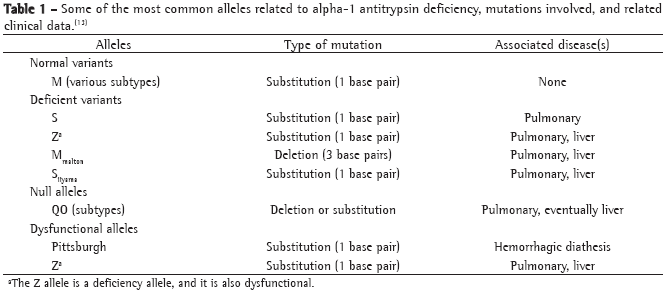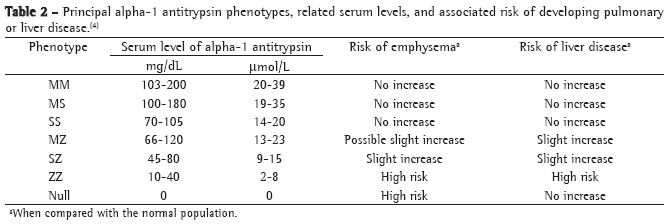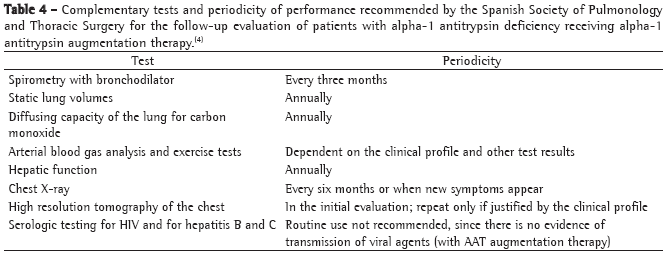Alpha-1 antitrypsin deficiency is a recently identified genetic disease that occurs almost as frequently as cystic fibrosis. It is caused by various mutations in the SERPINA1 gene, and has numerous clinical implications. Alpha-1 antitrypsin is mainly produced in the liver and acts as an antiprotease. Its principal function is to inactivate neutrophil elastase, preventing tissue damage. The mutation most commonly associated with the clinical disease is the Z allele, which causes polymerization and accumulation within hepatocytes. The accumulation of and the consequent reduction in the serum levels of alpha-1 antitrypsin cause, respectively, liver and lung disease, the latter occurring mainly as early emphysema, predominantly in the lung bases. Diagnosis involves detection of low serum levels of alpha-1 antitrypsin as well as phenotypic confirmation. In addition to the standard treatment of chronic obstructive pulmonary disease, specific therapy consisting of infusion of purified alpha-1 antitrypsin is currently available. The clinical efficacy of this therapy, which appears to be safe, has yet to be definitively established, and its cost-effectiveness is also a controversial issue that is rarely addressed. Despite its importance, in Brazil, there are no epidemiological data on the prevalence of the disease or the frequency of occurrence of deficiency alleles. Underdiagnosis has also been a significant limitation to the study of the disease as well as to appropriate treatment of patients. It is hoped that the creation of the Alpha One International Registry will resolve these and other important issues.
alpha 1-antitrypsin; Emphysema; Pulmonary disease, chronic obstructive








